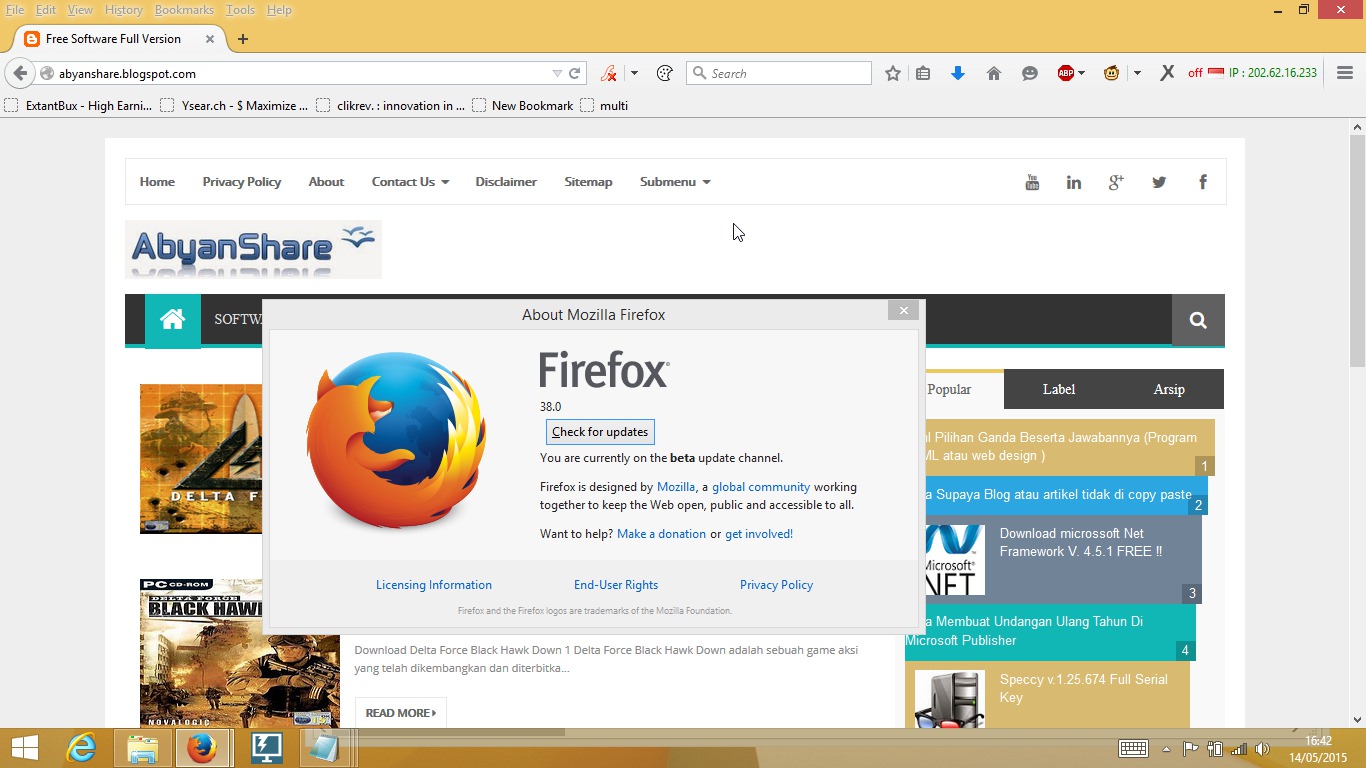
- #Mozilla wiki offline update#
- #Mozilla wiki offline code#
- #Mozilla wiki offline download#
- DoH Roll-Out (do not remove if you chose to use #Disable/enforce 'Trusted Recursive Resolver' above). To keep these extensions removed, consider adding the directories to NoExtract= in nf, see Pacman#Skip files from being installed to system. #Mozilla wiki offline update#
Note that any files removed will return upon update of the firefox package. They might not be enabled by default and may have a menu option for enabling or disabling. Many can be safely removed via rm extension-name.xpi. Some extensions are hidden and installed by default in /usr/lib/firefox/browser/features. See NoScript in Browser extensions#Privacy to block JavaScript the way Tor Browser does, which enables quick access when needed. Tor Browser blocks both JavaScript and Wasm. It has been criticized for hiding pathways for malware and as with JavaScript, can be used to track users.

#Mozilla wiki offline code#
As opposed to JavaScript, Wasm executes pre-compiled code natively in browsers for high-performance simulations and applications. Set webgl.disabled to true in about:config if you want to disable it.Īlso known as Wasm, WebAssembly is a relatively new language.
#Mozilla wiki offline download#
In addition disable download checking, by setting to false. To disable the Safe Browsing service, in about:config set: URL, file hashes, etc.) to third parties like Google. Safe Browsing offers phishing protection and malware checks, however it may send user information (e.g. One may want to simply allow location-access per site, instead of disabling this feature completely. Note: This may break websites that needs access to your location. Set geo.enabled to false in about:config. A list of currently available resolvers can be found in the curl wiki, along with other configuration options for TRR.
If you want to encrypt your DNS requests but not use Cloudflare servers, you can point to a new DNS over HTTPS server by setting to your resolver URL. Keep in mind that if you are using any intranet websites or trying to access computers in your local networks by their hostnames, enabling TRR may break name resolving in such cases. 
 If you trust Cloudflare DNS servers and would prefer extra privacy (thanks to encrypted DNS requests), you can enforce TRR by setting to 3 (which completely disables classic DNS requests) or 2 (uses TRR by default, falls back to classic DNS requests if that fails). (A value of 0 means disabled by default, and might be overridden by future updates - a value of 5 is disabled by choice and will not be overridden.) If you trust DNS servers you have configured yourself more than Cloudflare's, you can disable TRR in about:config by setting (integer, create it if it does not exist) to 5. While this is significantly more secure (as "classic" DNS requests are sent in plain text over the network, and everyone along the way can snoop on these), this also makes all your DNS requests readable by Cloudflare, providing TRR servers. It circumvents DNS servers configured in your system, instead sending all DNS requests over HTTPS to Cloudflare servers. Disable/enforce 'Trusted Recursive Resolver'įirefox 60 introduced a feature called Trusted Recursive Resolver (TRR). Warning: The "Do Not Track" header (DNT) may actually be used to fingerprint your browser, since most users leave the option disabled. Many of these anti-fingerprinting features are enabled by this setting in the about:config: Mozilla has started an anti-fingerprinting project in Firefox, as part of a project to upstream features from Tor Browser. Fingerprinting Protection is a different, experimental feature under heavy development in Firefox. The Firefox tracking protection blocks a list of known "fingerprinters" when your privacy settings are set to Standard (the default) or Strict. If you are already running such an ad blocker with the correct lists, tracking protection might be redundant. Note that this is not a replacement for ad blocking extensions such as uBlock Origin and it may or may not work with Firefox forks. trueĪpart from privacy benefits, enabling tracking protection may also reduce load time by 44%. It can be enabled in different levels via the GUI Settings -> Privacy & Security, or by setting about:config: The following are privacy-focused tweaks to prevent browser fingerprinting and tracking.įirefox gained an option for Enhanced Tracking Protection. 2.2 Remove system-wide hidden extensions.
If you trust Cloudflare DNS servers and would prefer extra privacy (thanks to encrypted DNS requests), you can enforce TRR by setting to 3 (which completely disables classic DNS requests) or 2 (uses TRR by default, falls back to classic DNS requests if that fails). (A value of 0 means disabled by default, and might be overridden by future updates - a value of 5 is disabled by choice and will not be overridden.) If you trust DNS servers you have configured yourself more than Cloudflare's, you can disable TRR in about:config by setting (integer, create it if it does not exist) to 5. While this is significantly more secure (as "classic" DNS requests are sent in plain text over the network, and everyone along the way can snoop on these), this also makes all your DNS requests readable by Cloudflare, providing TRR servers. It circumvents DNS servers configured in your system, instead sending all DNS requests over HTTPS to Cloudflare servers. Disable/enforce 'Trusted Recursive Resolver'įirefox 60 introduced a feature called Trusted Recursive Resolver (TRR). Warning: The "Do Not Track" header (DNT) may actually be used to fingerprint your browser, since most users leave the option disabled. Many of these anti-fingerprinting features are enabled by this setting in the about:config: Mozilla has started an anti-fingerprinting project in Firefox, as part of a project to upstream features from Tor Browser. Fingerprinting Protection is a different, experimental feature under heavy development in Firefox. The Firefox tracking protection blocks a list of known "fingerprinters" when your privacy settings are set to Standard (the default) or Strict. If you are already running such an ad blocker with the correct lists, tracking protection might be redundant. Note that this is not a replacement for ad blocking extensions such as uBlock Origin and it may or may not work with Firefox forks. trueĪpart from privacy benefits, enabling tracking protection may also reduce load time by 44%. It can be enabled in different levels via the GUI Settings -> Privacy & Security, or by setting about:config: The following are privacy-focused tweaks to prevent browser fingerprinting and tracking.įirefox gained an option for Enhanced Tracking Protection. 2.2 Remove system-wide hidden extensions. 
2.1 Disable WebAssembly (and JavaScript). 1.10 Disable/enforce 'Trusted Recursive Resolver'.








 0 kommentar(er)
0 kommentar(er)
